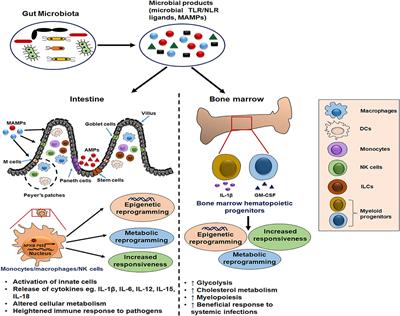REVIEW
Published on 11 Mar 2020
BCG as a Case Study for Precision Vaccine Development: Lessons From Vaccine Heterogeneity, Trained Immunity, and Immune Ontogeny

doi 10.3389/fmicb.2020.00332
- 14,859 views
- 61 citations
21k
Total downloads
79k
Total views and downloads
REVIEW
Published on 11 Mar 2020

REVIEW
Published on 25 Oct 2019

ORIGINAL RESEARCH
Published on 15 Oct 2019

SYSTEMATIC REVIEW
Published on 03 Sep 2019

ORIGINAL RESEARCH
Published on 04 Jun 2019

ORIGINAL RESEARCH
Published on 28 May 2019

REVIEW
Published on 07 May 2019

